Cats are curious creatures, often intrigued by the sights and smells of human food. While it might be tempting to share a morsel or two with your feline friend, certain foods can pose significant health risks to them. Understanding which foods to keep out of their reach is crucial for any cat owner. In this article, we will delve into eight common foods that can be toxic to cats, helping you ensure a safe diet for your beloved pet.
Chocolate
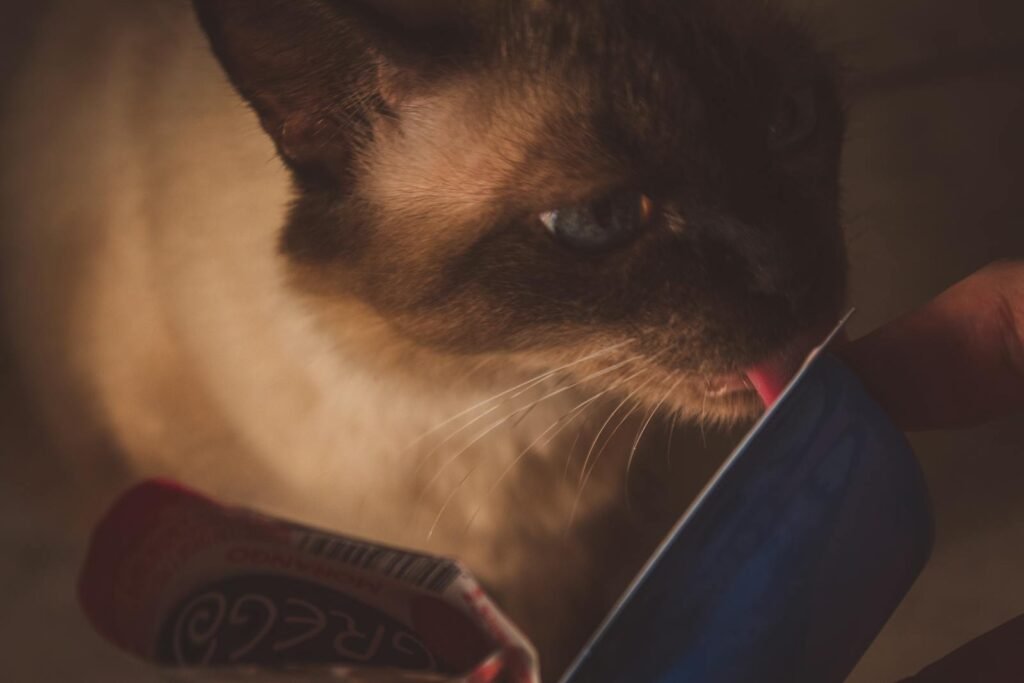
Chocolate is a well-known danger to many animals, including cats. It contains theobromine and caffeine, both of which are toxic to cats. Even small amounts can lead to symptoms such as vomiting, diarrhea, increased heart rate, and, in severe cases, seizures or death. Dark chocolate and unsweetened baking chocolate are particularly harmful due to their higher cocoa content. Always store chocolate products securely and avoid leaving them within your cat’s reach.
Onions and Garlic
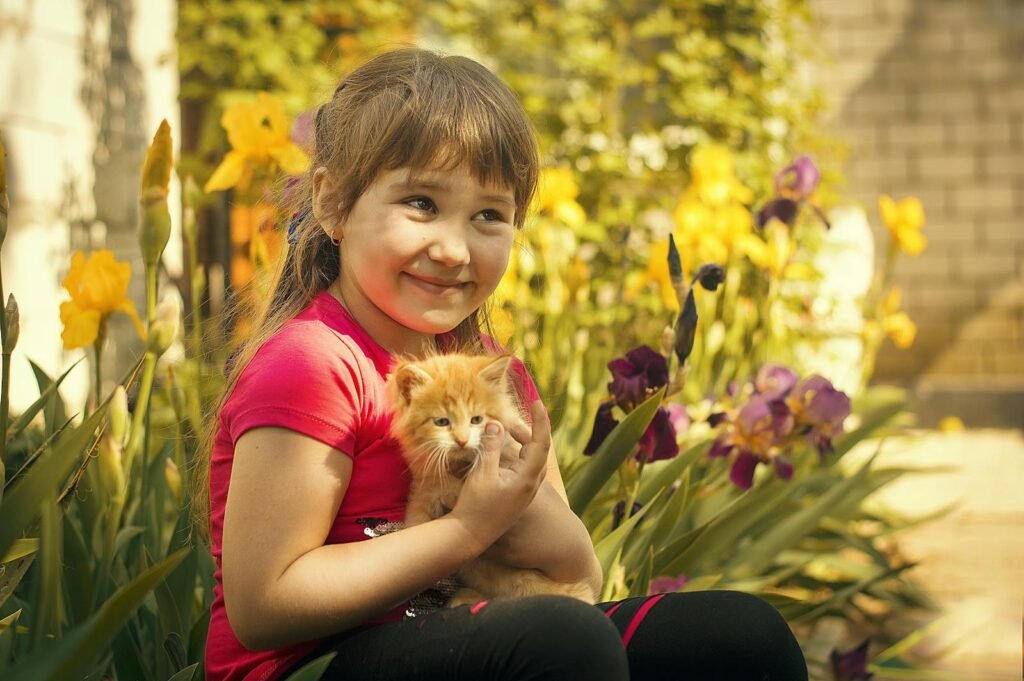
Onions, garlic, and other members of the allium family can cause damage to a cat’s red blood cells, leading to anemia. Any form, including raw, cooked, powdered, or dehydrated, can be harmful. Symptoms of poisoning may include lethargy, weakness, reduced appetite, and pale gums. If you suspect your cat has consumed any of these foods, it is crucial to seek veterinary advice immediately.
Grapes and Raisins
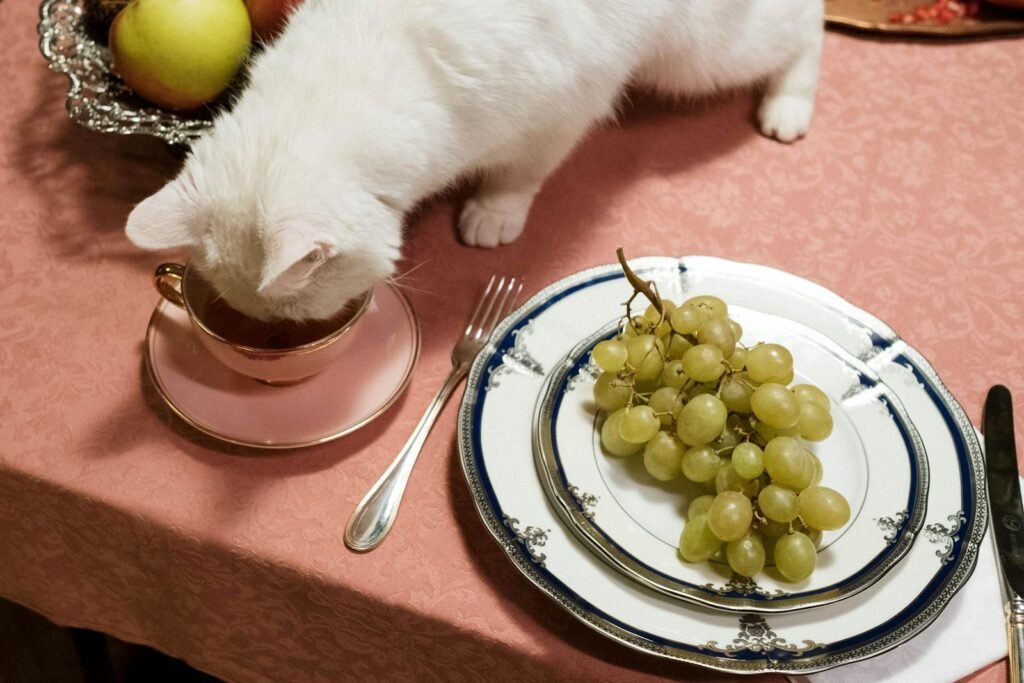
While more commonly associated with toxicity in dogs, grapes and raisins can also affect cats. Consumption of these fruits can lead to the development of kidney failure, which is potentially life-threatening. Symptoms to watch out for include vomiting, lethargy, and a decrease in urination. Even small quantities can be risky, so it’s best to keep these foods completely out of your cat’s diet.
Alcohol
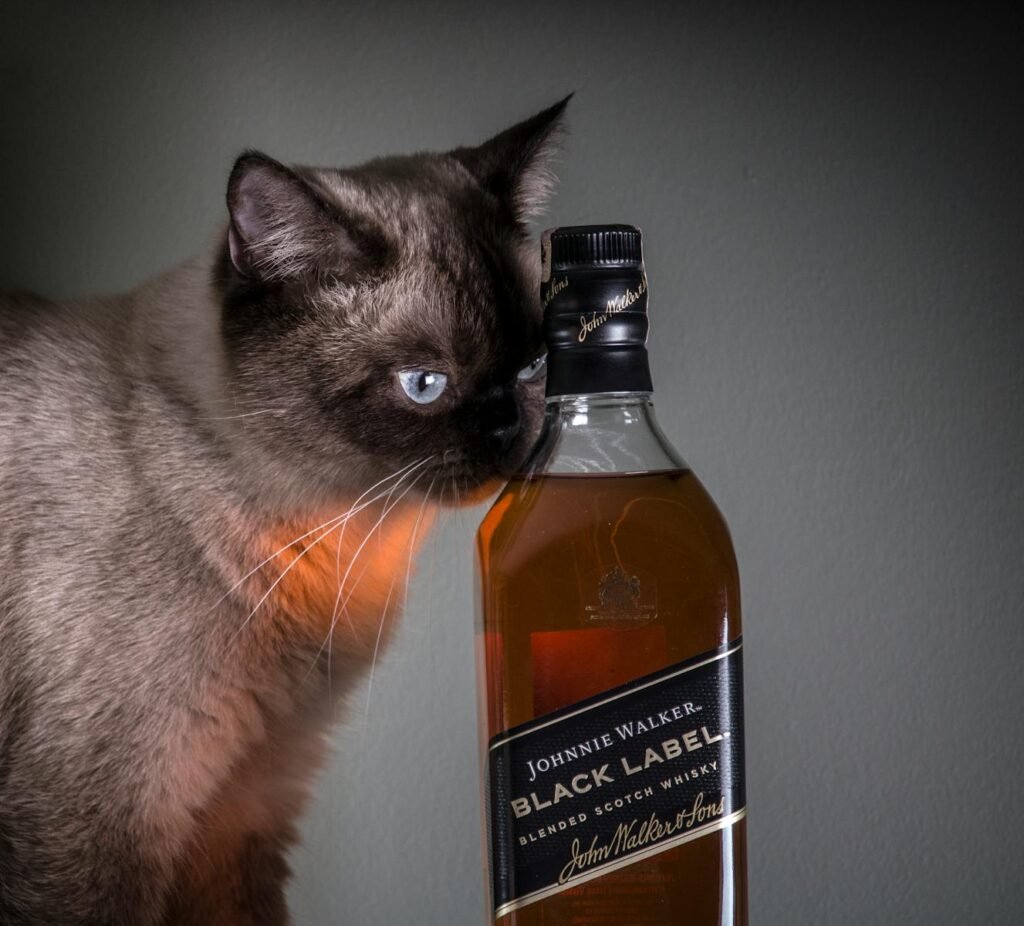
Alcohol, even in small amounts, can be extremely dangerous to cats. It affects their liver and brain, much like it does in humans, but cats are far more sensitive to its effects. Ingestion can result in vomiting, diarrhea, coordination problems, difficulty breathing, and even coma or death. Be mindful of any drinks left unattended and ensure that alcohol-containing foods are inaccessible to your cat.
Caffeine
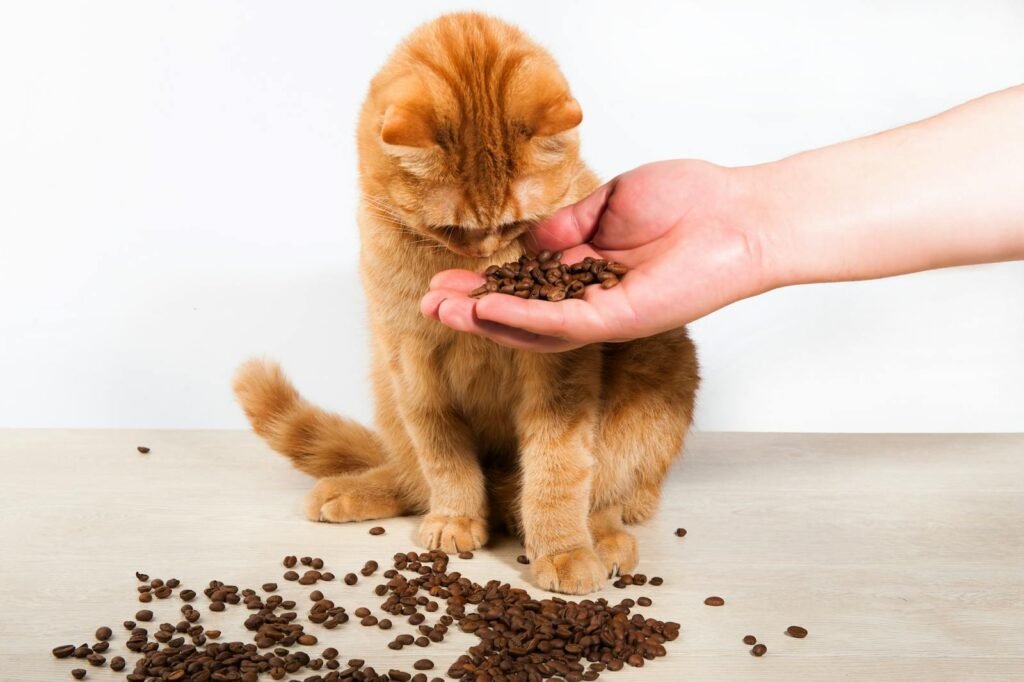
Caffeine is found in a wide array of products, from coffee and tea to some medications and energy drinks. Cats are highly sensitive to caffeine, and ingestion can lead to restlessness, rapid breathing, heart palpitations, muscle tremors, and seizures. If you suspect your cat has ingested caffeine, immediate veterinary care is essential to prevent serious health issues.
Raw Eggs and Meat
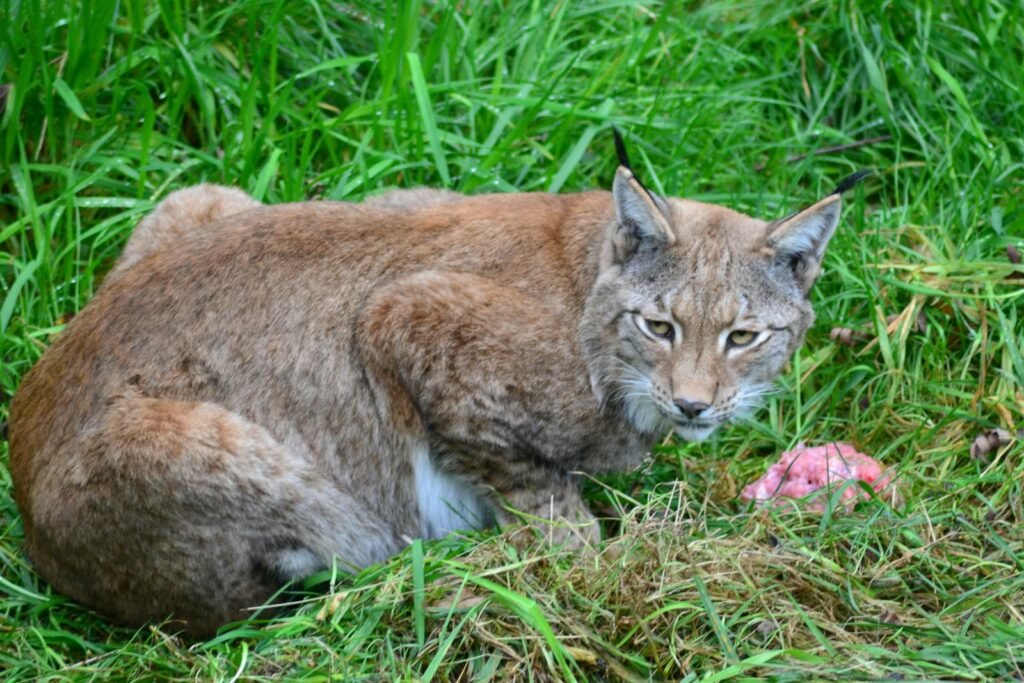
Raw eggs and meat pose a significant risk of bacterial infections, such as Salmonella and E. coli, which can be harmful to both cats and humans. Additionally, raw eggs contain avidin, an enzyme that can inhibit the absorption of biotin and lead to skin and coat problems. Cooking meat and eggs thoroughly before offering them ensures that harmful bacteria and enzymes are effectively neutralized.
Milk and Dairy Products
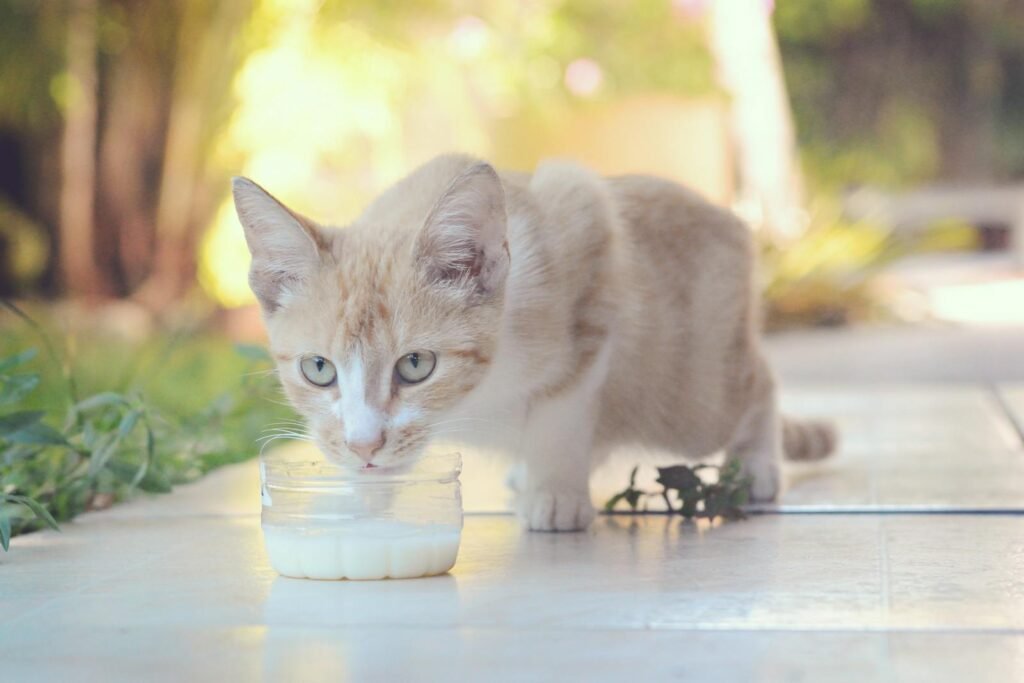
Contrary to popular belief, not all cats can digest milk and other dairy products. Many cats are lactose intolerant, which means they lack the enzyme needed to digest lactose found in milk. Consumption can lead to digestive upset, including diarrhea and stomach pain. If your cat enjoys milk, consider offering lactose-free alternatives designed specifically for felines.
Xylitol

Xylitol is a sweetener commonly found in sugar-free candies, gums, and baked goods. Although primarily a concern for dogs, it can also affect cats adversely. Ingestion can result in a rapid insulin release, leading to hypoglycemia, which is characterized by weakness, vomiting, and even seizures. Always check labels and keep xylitol-containing products well out of your cat’s reach.
Ensuring your furry friend’s safety begins with being aware of the foods that pose a threat to their health. By keeping these toxic foods out of your cat’s diet, you help safeguard them from potential harm. Always prioritize appropriate cat food and treats and consult your veterinarian when in doubt about your pet’s diet. A little vigilance can go a long way in ensuring a long, healthy life for your beloved cat.

Linnea is a born and bred Swede but spends as much time as possible in Cape Town, South Africa. This is mainly due to Cape Town’s extraordinary scenery, wildlife, and atmosphere (in other words, because Cape Town is heaven on earth.) That being said, Sweden’s majestic forests forever hold a special place in her heart. Linnea spends as much time as she can close to the ocean collecting sea shells or in the park admiring puppies.






